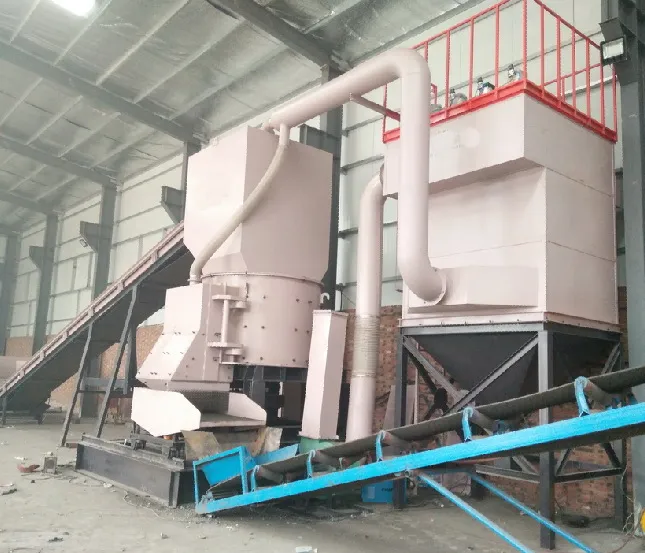

nov . 07, 2024 19:11 Back to list
The Importance of Metal Recycling Plants
In recent years, the world has witnessed an increasing demand for sustainable practices in various industries, especially in the realm of manufacturing. Metal recycling plants play a critical role in this transformation, standing at the forefront of the fight against environmental degradation while simultaneously fulfilling the growing need for metal resources. The significance of these facilities extends beyond mere recycling; they embody a holistic approach to resource management, economic efficiency, and ecological responsibility.
Understanding Metal Recycling
Metal recycling involves collecting scrap metal, processing it, and converting it back into usable materials. This process not only reduces the need for virgin metal extraction but also minimizes the environmental impact associated with mining and refining operations. Metals such as aluminum, copper, steel, and lead are commonly recycled, each requiring specialized processes tailored to their unique properties.
Environmental Benefits
The environmental benefits of metal recycling plants are substantial. Firstly, recycling metals significantly lowers greenhouse gas emissions when compared to the production of new metals from raw ore. For instance, producing aluminum from recycled materials requires 95% less energy than producing it from bauxite ore. This energy efficiency leads to a decrease in fossil fuel consumption, which is critical for mitigating climate change.
Additionally, metal recycling helps conserve natural resources. It is estimated that recycling one ton of steel saves over 1,400 pounds of coal, 600 pounds of iron ore, and 120 pounds of limestone. By diverting metals from landfills and repurposing them, recycling plants contribute to a circular economy where materials are reused multiple times, reducing the depletion of finite resources.
Economic Contributions

Metal recycling plants also play a vital economic role. They create job opportunities in various sectors, from collection and processing to transportation and sales. In fact, the recycling industry as a whole generates millions of jobs globally, boosting local economies and fostering community development. Moreover, recycling reduces production costs for manufacturers. By sourcing recycled metals, companies can decrease their expenditure on raw materials, often leading to lower prices for consumers.
The growth of the recycling industry has also stimulated innovation. Companies are continually developing advanced technologies to improve the efficiency and effectiveness of metal recycling processes. For instance, innovations in sorting technologies, such as optical sorters and eddy current separators, have enhanced the purity of recycled metals, making them more appealing to manufacturers.
Challenges Facing Metal Recycling Plants
Despite their importance, metal recycling plants face several challenges. One major issue is the contamination of scrap metal. When metals are mixed with non-recyclable materials, it can complicate the recycling process and lower the quality of the output. Public awareness and education on proper recycling practices are crucial in addressing this problem.
Furthermore, fluctuations in global metal prices can impact the profitability of recycling operations. When prices drop, some plants may struggle to remain financially viable, which can lead to reduced recycling rates. Establishing stable markets for recycled materials is essential to ensure the sustainability of these facilities.
The Future of Metal Recycling
The future of metal recycling plants looks promising, thanks to increasing regulations aimed at encouraging sustainable practices, advancements in technology, and greater consumer awareness about the benefits of recycling. Governments worldwide are implementing stricter policies for waste management, further highlighting the need for efficient recycling systems.
In conclusion, metal recycling plants are vital to achieving a sustainable future. They not only help reduce environmental impact and conserve natural resources but also contribute economically by creating jobs and fostering innovation. As society continues to prioritize sustainability, the role of these plants becomes increasingly important. By improving recycling operations and increasing public engagement, we can ensure that metal recycling plants continue to thrive, paving the way for a greener, more sustainable world.
Latest news
Troubleshooting Common Eddy Separator Problems
NewsJul.04,2025
The Role of Metal Recycling Plants in Circular Economy
NewsJul.04,2025
The Impact of Recycling Line Pickers on Waste Management Costs
NewsJul.04,2025
Safety Features Every Metal Shredder Should Have
NewsJul.04,2025
How Industrial Shredders Improve Waste Management Systems
NewsJul.04,2025
How Cable Granulators Contribute to Sustainable Recycling
NewsJul.04,2025